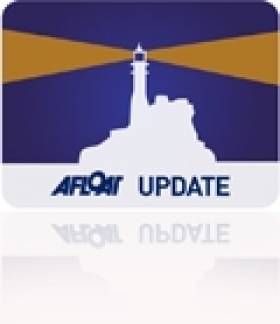Displaying items by tag: Maxi Banque Populaire
Record-Breaking Conditions Ahead for Fastnet Race
The largest, most diverse fleet of racing boats ever in offshore yachting set sail this morning in the Rolex Fastnet Race.
The biennial flagship event of the Royal Ocean Racing Club, a tradition since 1925, will take the fleet some 608 miles from Cowes on the Isle of Wight along the UK's south coast and across the Celtc Sea to Fastnet Rock off the Cork coastline, before returning past the Scilly Isles to the finish line at Plymouth.
An incredible 318 yachts are competing this year and they come in all shapes and sizes, from the 40m trimaran Maxi Banque Populaire to the 9.1m Rogers 30, Brightwork.
The majority of the fleet will be racing under the IRC for the Fastnet Challenge Cup, won by the crew that sails best to their rating. The weather will play a big part in this, as a fast start and slow finish favours bigger boats - so far today looks to be the opposite.
The 45-55 foot boats will surely provide the most competitive action, with past Fastnet winner Piet Vroon piloting his championship-leading Ker 46 Tonnere de Breskens towards another victory.
Fans of the Volvo Ocean Race will also be watching the race live tracker intently today, as this is one of the only times many of the competitors will line up together before the start of the round-the-world yachting challenge.
Regatta News has more on the story HERE.
























































